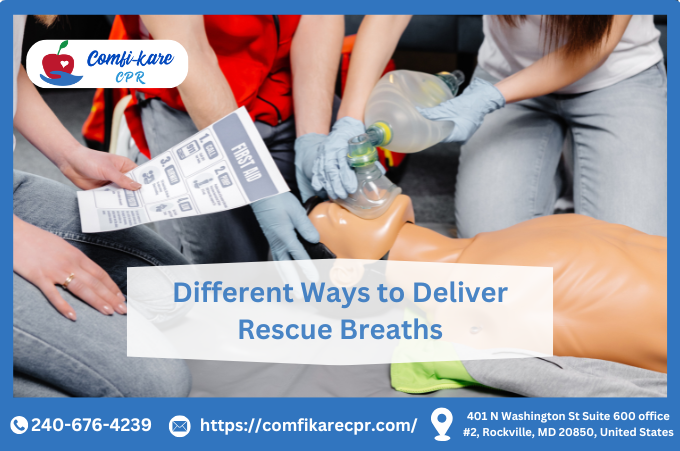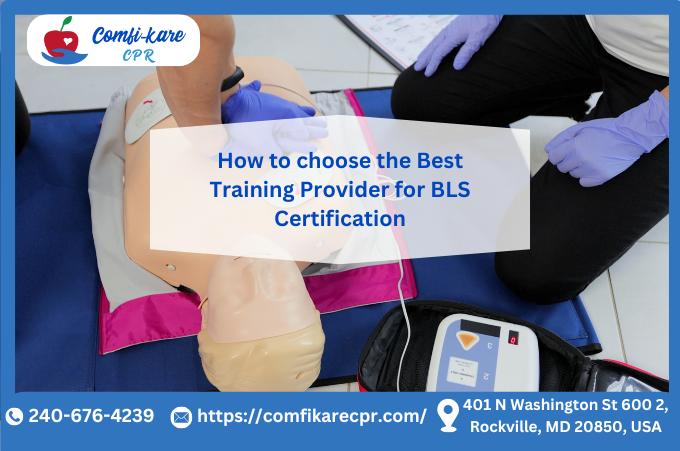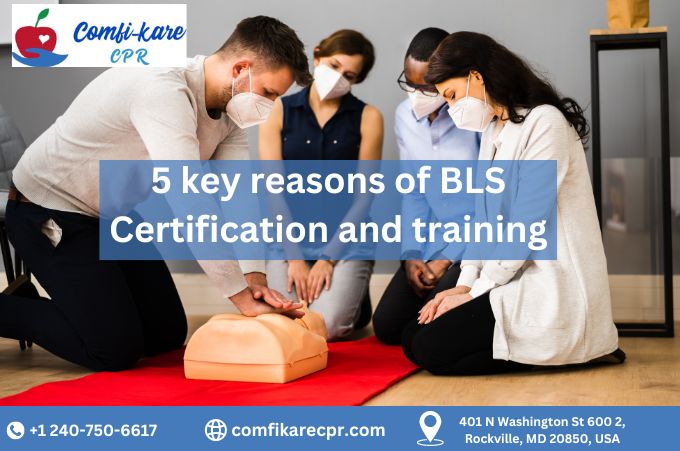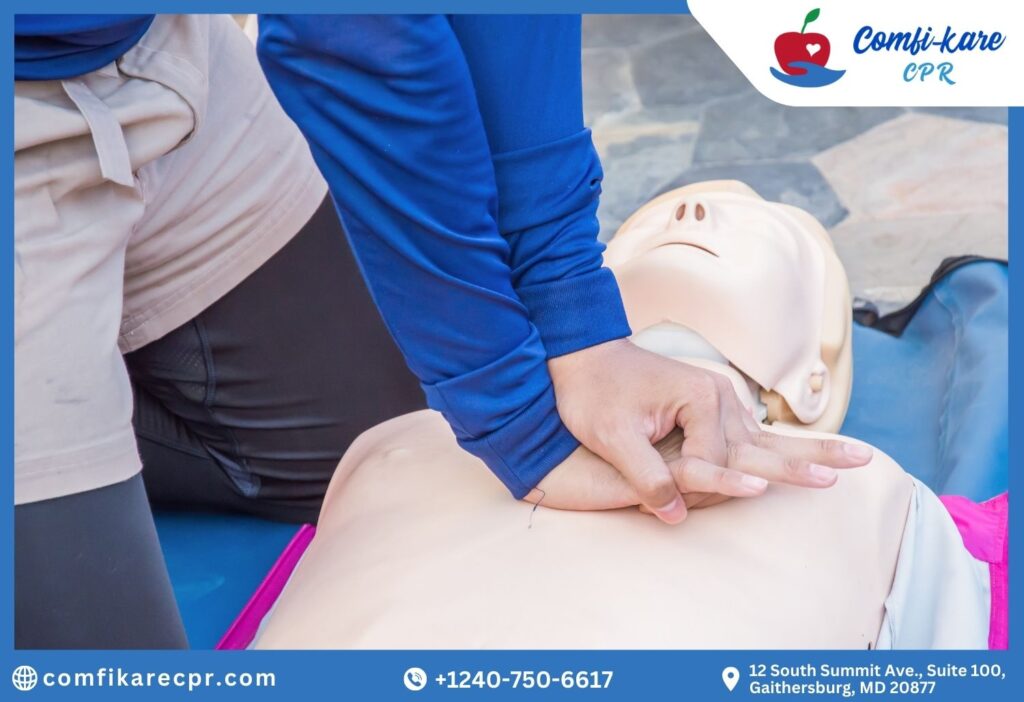
We are certified by the American Heart Association to teach (ACLS,BLS,PALS,CPR)
Category Archives: Basic Life Support

BLS for Nurses: Essential Life-Saving Skills Explained in Maryland
Basic Life Support (BLS) is a core requirement in modern nursing. Hospitals, clinics, and long-term care facilities expect nurses to be trained in recognizing cardiac arrest, performing high-quality CPR, and using an AED. Having BLS for nurses in Mar...
Read More ›
Different Ways to Deliver Rescue Breaths
Rescue breaths can be essential during emergencies when someone cannot breathe. Rescue breathing provides oxygen directly into the lungs to reduce brain damage or death, saving lives when combined with chest compressions during CPR. There are various...
Read More ›
How to choose the Best Training Provider for BLS Certification
How to choose the Best Training Provider for BLS Certification in Rockville? Basic Life Support certification equips individuals with lifesaving skills. This training is crucial for healthcare providers, emergency responders, and community members...
Read More ›
5 key reasons of BLS Certification and training
Healthcare professionals and laypersons a like must become trained in Basic Life Support (BLS) and basic life support training . BLS skills could make the difference between life and death during an emergency situation; therefore this article explore...
Read More ›
ACLS vs. BLS: 5 Key Differences You May Not Be Aware...
Medical certifications, like Advanced Cardiac Life Support (ACLS) and Basic Life Support (BLS), provide a basic idea of how to act promptly during a medical emergency. Whether you work in the healthcare industry or as a community worker, getting ACLS...
Read More ›
How to Choose the Best BLS Course in Frederick County?
The Basic Life Support training course is specially designed for healthcare professionals, including physicians, nurses, emergency medical services (EMS) professionals, healthcare workers, and public safety personnel, to identify cardiac emergencies ...
Read More ›


